
Canguro English
Canguro English
Canguro English presents a podcast about language for people learning languages.
- 1 hour 21 minutesAccent and identity (with Erik Singer)
If you know me and my work then you know that I talk a lot about identity, and especially how your accent is a big part of your identity: your accent tells the story of your life.
But if you do want to change your accent, or improve your pronunciation, how do you do it?
Recently I had the pleasure of talking to someone with expert answers to that question: Erik Singer, a dialect coach who helps film and television actors to speak with an accent that is not their native accent, and because of this he knows exactly what it takes mentally and physically to change the way you speak.
In this interview we talk about how to change your accent, the best ways to practice, but more importantly if and why you should try to ‘speak like a native’.
I hope you enjoy it.
13 July 2021, 10:17 am - 1 hour 4 minutesThe state of modern linguistics | The Story of Language | Bonus episode
Welcome to The Story of Language: an original podcast series about language, linguistics, cognition, and culture. In this bonus episode we talk about the state of modern linguistics, including the effects of the replication crisis, scientific fraud, Anglocentrism, and how the underappreciated work of Charles Sanders Peirce might offer a universal theory of how language works.
13 June 2021, 8:00 am - 1 hour 7 minutesEmbodied cognition | The Story of Language | Episode 12
Welcome to The Story of Language: an original podcast series about language, linguistics, cognition, and culture. In this episode we discuss embodied cognition and the uncontroversial fact that the brain is an organ of the body, which then leads to the very controversial conclusion that our brain is no more important than our skin, and that imagining the world as if you had eyes in your toes can lead to some revolutionary new thinking.
6 June 2021, 8:00 am - 1 hour 31 minutesDark matter of the mind | The Story of Language | Episode 11
Welcome to The Story of Language: an original podcast series about language, linguistics, cognition, and culture. In this episode we discuss the content of Dan’s book Dark Matter of the Mind, which lays out Dan’s theory of culture. The book contains bold statements as ‘brains do not learn’ and ‘science is NOT pure rational thought’, but after this conversation you might change your mind about the raw power of viewing the world from the perspective of Dark Matter.
30 May 2021, 8:00 am - 1 hour 16 minutesThe cognitive revolution | The Story of Language | Episode 10
Welcome to The Story of Language: an original podcast series about language, linguistics, cognition, and culture. In this episode we talk about the cognitive revolution, and whether the revolution really exists at all. We discuss the beginnings and the state of the art of the study of cognition and show why it’s important to celebrate all discoveries as progress, even if they are doomed to failure.
16 May 2021, 8:00 am - 1 hour 14 secondsEndangered languages | The Story of Language | Episode 9
Welcome to The Story of Language: an original podcast series about language, linguistics, cognition, and culture. In this episode we talk about endangered languages. I ask why languages are important, what is lost when a language disappears, the cultural and economic factors behind language loss, and the truth about the best way to stop languages from disappearing.
2 May 2021, 8:00 am - 1 hour 12 minutesLanguage acquisition | The Story of Language | Episode 8
Welcome to The Story of Language: an original podcast series about language, linguistics, cognition, and culture. In this episode we talk about the big questions in language acquisition. Is there a Language Acquisition Device? Is language learned or innate? How does child learning differ from adult learning? Should syntax be the basis for language analysis? And are humans really the only things on the planet with language, or do other animals have it too?
18 April 2021, 8:00 am - 1 hour 5 minutesMetaphor in language | The Story of Language | Episode 7
Welcome to The Story of Language: an original podcast series about language, linguistics, cognition, and culture. In this episode we talk about the fundamental role of metaphor in language, from its involvement in the creation and evolution of language to its role in the modern understanding of language through the work of Lakoff and Johnson, and the study of semiotics.
4 April 2021, 8:00 am - 1 hour 15 minutesLearn English with a dictionary (with Peter Sokolowski)
People are passionate about language, especially language change, and words matter. And nobody knows this better Peter Sokolowski, who is an editor at the Merriam-Webster dictionary, one of the most famous and most trusted dictionaries in the world. Peter has spent his life immersed in words and their meanings, and all the complications that come along with that work. In this interview we talk about the role of the dictionary, standard and non-standard English, language and culture, how to learn English with a dictionary, and how dictionaries are a sign of human agreement, and sometimes profound disagreement.
1 December 2020, 4:01 pm - 15 minutes 58 seconds1 powerful mind trick to get fluency
In this podcast you will learn how Pygmalion and the Wizard of Oz can teach you the secret to fluency in English that has been causing controversy for more than 50 years.
26 November 2020, 4:08 pm - 57 minutes 59 secondsDestroying language myths (with Shana Poplack)
It’s an unfortunate fact that many people don’t know the truth about how language works outside of their grammar books, in the real world, but recently I spoke to someone who is trying to change that. Shana Poplack and her sociolinguistics laboratory at the University of Ottawa are known as the mythbusters, because they destroy damaging myths about language and language change. They don’t look at language in its ideal state: they look at how language is used every day by real people, and the discoveries they make are often controversial, and fly in the face of deeply-held beliefs, but their discoveries are always based in truth.
19 November 2020, 3:00 pm - More Episodes? Get the App
Your feedback is valuable to us. Should you encounter any bugs, glitches, lack of functionality or other problems, please email us on [email protected] or join Moon.FM Telegram Group where you can talk directly to the dev team who are happy to answer any queries.
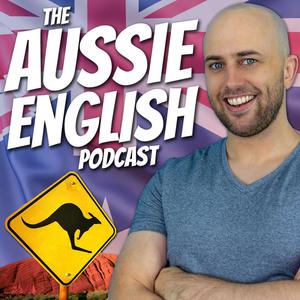 Aussie English
Aussie English
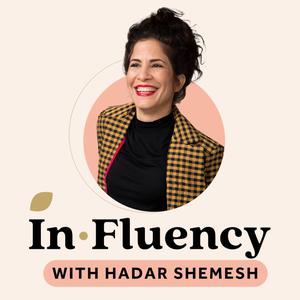 The InFluency Podcast
The InFluency Podcast
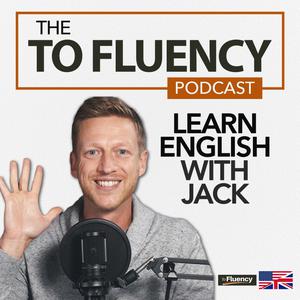 To Fluency Podcast: English with Jack
To Fluency Podcast: English with Jack
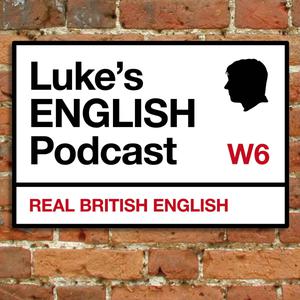 Luke's ENGLISH Podcast - Learn British English with Luke Thompson
Luke's ENGLISH Podcast - Learn British English with Luke Thompson
 RealLife English: Learn and Speak Confident, Natural English
RealLife English: Learn and Speak Confident, Natural English
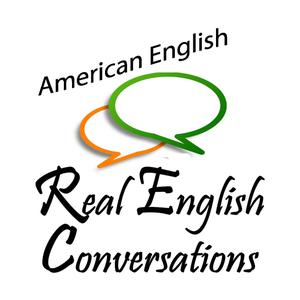 Real English Conversations Podcast - Learn to Speak & Understand Real English with Confidence!
Real English Conversations Podcast - Learn to Speak & Understand Real English with Confidence!